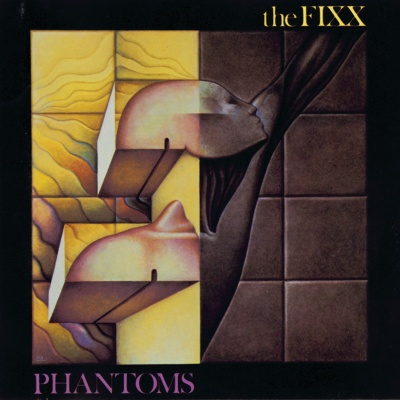
Phantoms
by Stephen Thomas ErlewineThe Fixx had a banner year in 1983, as their second album, Reach the Beach, broke down doors and gave the band a huge hit with "One Thing Leads to Another." Phantoms wasn't as good, not just because Reach the Beach had that hit but also because it was simply a really good mainstream new wave record. Phantoms was a little more serious, a little more lugubrious, a little directionless, but it still is a pretty good record, all the same. The reason why? The Fixx were a good band. They had an original sound, thanks to the echoing synths, clean-processed guitars, cavernous drums, and Cy Curnin's soaring voice, which soared over the precise arrangements to make it sound human. The wondrous thing about this combination is that it sounded appealing even when the material wasn't the equal of the sound, which is often the case on Phantoms. That's not to say it's a disaster, because it hardly is -- the band sounds good, and the record is a shining example of post-new wave production. But, it does play a bit as singles and filler, with the Top 20 hit "Are We Ourselves" shining brightly among the record's 12 songs, but "Lose Face," the reggae-tinged "Sunshine in the Shade," and "Woman on a Train" all were fine Fixx songs, standing proudly among the perfectly acceptable, but rather undistinguished, cuts that formed the rest of the album, including a preponderance of long, moody synth ballads. Even if it was an uneven record, its ratio of hits to filler was no greater than most pop albums. However, Phantoms had the misfortune of arriving in one of the greatest years for pop music, a year where every kind of style was in full bloom. So, Phantoms fell by the wayside, but, in retrospect, it was an admirable successor to an album that defined a band's career.
